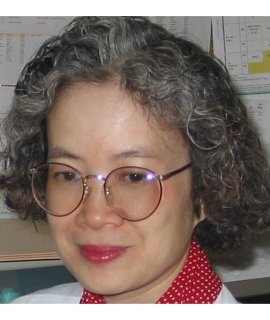Title : Superficial radiation ulcer of the skin: Comparison of the innovative photodynamic therapy (used in the first documented Canadian case) with other alternatives
Abstract:
Introduction: Photodynamic therapy (PDT) promotes wound healing while its clinical use is not investigated in human for radiation-induced skin ulcers.
Methods and Materials: We documented the first Canadian in-human case and searched the PubMed literature using “PDT" AND "radiation" AND "ulcer" terms.
Results: PDT has been used on premalignant and malignant skin cancers for years. Our patient had a radiation-induced refractory post-mastectomy radiotherapy chest wall ulcer of 5-year duration, published in the Cureus journal in August 2024. There are 6 laboratory reports (total 95 rats) in the literature with an overall efficacy of 90%. We documented ulcer healing at 3-month follow-up with gradual improvement to total healing by 14 months. The topically applied 5-aminolevulinic acid (5-ALA) was activated by red light of wavelength 630 nm after an incubation time of 5 hours. The median incubation time, as the body tissue takes up 5-ALA, was 4 (range: 2-18) hours after topical application in the literature. We used three 30-minute treatments at month 0, 1, 5 months, which can vary depending on treatment response. No complication developed. Currently large PDT Canadian centers for malignant cutaneous, esophageal and bronchial lesions are located in Calgary, Hamilton, Kingston, Toronto, Ottawa and Montreal.
Comparing with hyperbaric oxygen therapy (HBOT), a well-known standard of care treatment for radiation-induced skin ulcers, PDT is non-invasive and safe with few complications, e.g., skin irritation/swelling (rarely requiring steroid treatment), photosensitivity and retinal damage. PDT has a lower cost: 5-ALA costs only CAN$500/session for Metvix (methyl 5-ALA, currently approved by Health Canada) vs HBOT requiring 30 sessions with a total cost of $15,000 in the Ontario province of Canada. PDT procedure is simple and safe. Hence, PDT providers can be nurse practitioners, family doctors, or specialists (radiation oncologists, general surgeons), unlike HBO requiring subspecialists with special expertise with higher overhead and hence higher billing costs to the health care system. Besides, HBO has risks of hearing damage, pain in the ear/sinus/tooth, claustrophobia, fatigue, temporary near-sightedness and hypoglycemia in diabetics.
Other alternatives for wound healing are (1) pentoxifylline, vitamin E (both non-invasive and easily administered, with track record for safety); (2) mesenchymal stem cells and interferon-gamma, growth factors (still early in development); and (3) surgical debridement/grafting/flap coverage (invasive, labor-intensive, costly, requiring experience, with waiting list due to operation room staff shortage in some countries).
Conclusions: Laboratory publications substantiate the efficacy of PDT on radiation-induced ulcer healing. The first Canadian clinical case was documented by us in Ontario. It is cost-effective for superficial radiation-induced ulcers. Further clinical studies are warranted to evaluate the optimal treatment schema and effects on quality of life. Hopefully it can be widely available with costs covered by the government.



